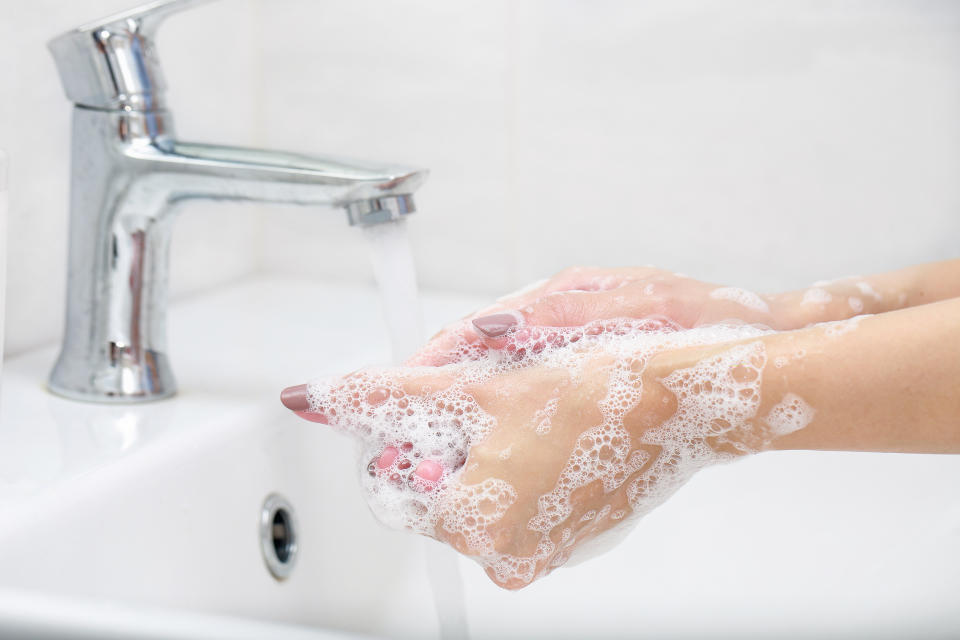Coffee may help OCD patients control urge to wash their hands, study suggests

Drinking coffee could help someone with obsessive compulsive disorder (OCD) control their urges, research suggests.
Scientists from The Hebrew University of Jerusalem analysed 47 people with “high contamination fears”.
Half of the participants drank coffee before touching what appeared to be dirty nappies. They were then asked to wait as long as possible before washing their hands.
Those in the “caffeine group” waited around twice as long, as well as showing significantly less distress after touching the “potentially contaminated and disgusting stimulus”.
Read more: No coffee safe in pregnancy, scientist warns
The scientists believe the “arousal” that comes from drinking coffee may help “improve our ability to resist intrusive disgust and compulsive cleansing behaviours”.

One one in 100 (1.1%) people in the UK are thought to have OCD.
Symptoms are generally obsessive – when an intrusive thought repeatedly enters the mind; emotional – the obsession causes a feeling of intense anxiety or distress; and compulsive – repetitive behaviours that a patient feels driven to perform as a result of the anxiety and distress.
People with contamination-based OCD often experience a sense of disgust, which may be “temporarily alleviated by compulsive cleansing”, the scientists wrote in the Journal of Anxiety Disorders.
“In actuality compulsive cleansing has the opposite effect and increases the severity of symptoms in the long run, thereby reinforcing the disgust response.”
Previous research has suggested physiological arousal via stimulants like caffeine may “potentially moderate inhibition”.
Read more: Two cups of filtered coffee a day could slash risk of type 2 diabetes
To learn more, the scientists looked at 47 people aged between 20 and 30 with high contamination fears.
All the participants were asked to refrain from drinking coffee for eight hours before the experiment.
They were then given 40ml of either a caffeinated or decaffeinated drink.
Half an hour later, to allow the caffeine to take effect, the participants placed one of their hands inside a container of wet nappies for one minute.
The participants recorded their distress on a scale of one to 10, with one being none and 10 being unbearable. An urge-to-wash was also recorded, from none to very strong.
They had access to a sink throughout the experiment, with the scientists recording when – and for how long – the participants washed their hands.
Watch: How to manage OCD amid the pandemic
“Participants in the caffeine group exhibited significantly lower subjective distress and urges-to-wash their hands both after touching the stimulus and while waiting to engage in the cleansing behaviour,” wrote the scientists.
“Similarly, the caffeine group resisted the urge to compulsively cleanse for about twice as long as those in the no-caffeine group.”
The time spent washing their hands was similar between the groups.
When testing arousal, the scientists found the participants who drank the caffeinated drink performed better on a reactionary test.
Read more: Adding peanut skins to milk chocolate makes it healthier
“Overall, the current findings support the hypothesis that increased arousal enables better resistance to compulsive behaviour and reduces distress triggered by disgust,” wrote the scientists.
“Patients and clinicians will find it useful to know it is more feasible to control symptoms during times of high arousal, and can use this knowledge to improve treatment outcomes.
“Arousal should be considered as a new treatment target by both psychopharmacological and psychotherapy scientists.”
OCD is mainly treated through psychological therapy that helps a patient face their fears and obsessive thoughts or via medication, usually an antidepressant, that can alter the balance of chemicals in the brain.
Watch: Experimental drug offers hope for OCD patients



